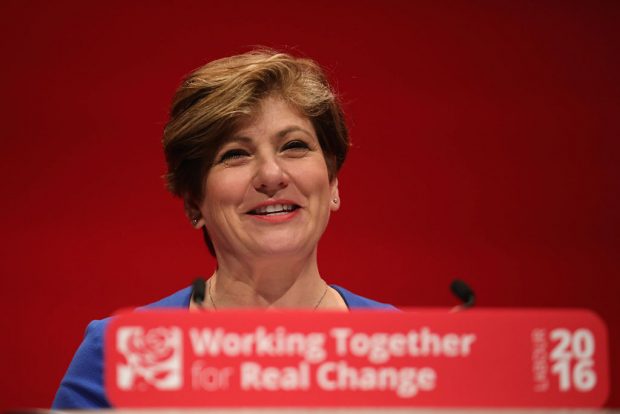Labour wants to ask the Government 170 questions about its plan for Brexit. Yet when it comes to answering questions themselves, it seems the party is much less willing to give an answer. Emily Thornberry, in her new guise as shadow foreign secretary, was quizzed on how Labour would handle migration from the EU after Brexit on the Today show just now. And in typical fashion, she did her best to dodge the question. Here’s what she said:
‘Our position is that we need to be open to the idea of reasonably managed migration. And we need to have it as part of a larger negotiation but we are open to that. Our position is that it is a negotiation and our position is that nobody who voted in the Brexit referendum voted to take away someone else’s job. No one voted for our economy to be undermined. Nobody voted to take away their neighbour’s job. The economy should be the first priority for any Government in this country.’
Labour likes to pretend the issue of migration doesn’t exist. And Emily Thornberry pulled off a typical manoeuvre of steering the topic onto something else: the economy. But the truth is, it’s not so simple to ignore voters’ worries about migration. Yes, Emily Thornberry is probably right in saying no one voted for Brexit to put their neighbour out of a job. But many in Britain are worried about the effect on their own employment prospects as a result of unmanaged migration. The statistics on whether migration from Europe does have an adverse effect on employment prospects for those who live in areas where the influx of migrants is particularly high aren’t clear. This Oxford University study, for what it’s worth, suggests it’s hard to say one way or the other. But the study does admit that surveys of this kind inevitably conceal ‘losses and gains for some’. So, basically, some people benefit from migration, while others lose out. And to the latter, Emily Thornberry’s dismissal of migration says one thing: we’re not listening.
While Thornberry seemed to suggest she knew exactly why people didn’t vote for Brexit, we can be somewhat more accurate in finding out why people did vote to leave the EU. And what we know is that, for many people, migration was one of the key things they considered when doing so. Lord Ashcroft’s poll following the referendum is the best thing we have to understanding voters’ motivations for siding the way they did (13,000 people were surveyed). And it shows that ‘regaining control’ over immigration was the second biggest reason for backing Leave (a third of voters said this was their main reason). Worryingly, for a party that appears not to have thought things through on this, it was the same for Labour voters: with those who voted for Ed Miliband at the last election also citing migration as one of their biggest reasons for backing Brexit.
And yet Labour still seems to want to refuse to face up to this reality. Labour moderates are doing their best, with the likes of Chuka Umunna saying that it’s too high a price to stay in the single market if it means continued free movement. But not everyone in the party shares that consensus-winning approach. Jeremy Corbyn told Labour’s party conference that he wouldn’t cap the number of migrants coming into Britain. While Keir Starmer said at the weekend that immigration should be reduced. Emily Thornberry sat herself somewhere in the middle of those two positions this morning, as she insisted that ‘we are doing our job as the opposition, and we’re doing it well’. Meanwhile, Ukip – if it manages to stop tearing chunks out of itself – is waiting in the wings. And if it can get itself together, the consequences for Labour – a party that refuses to be straightforward with voters about one of their biggest worries – look bleak.







Comments